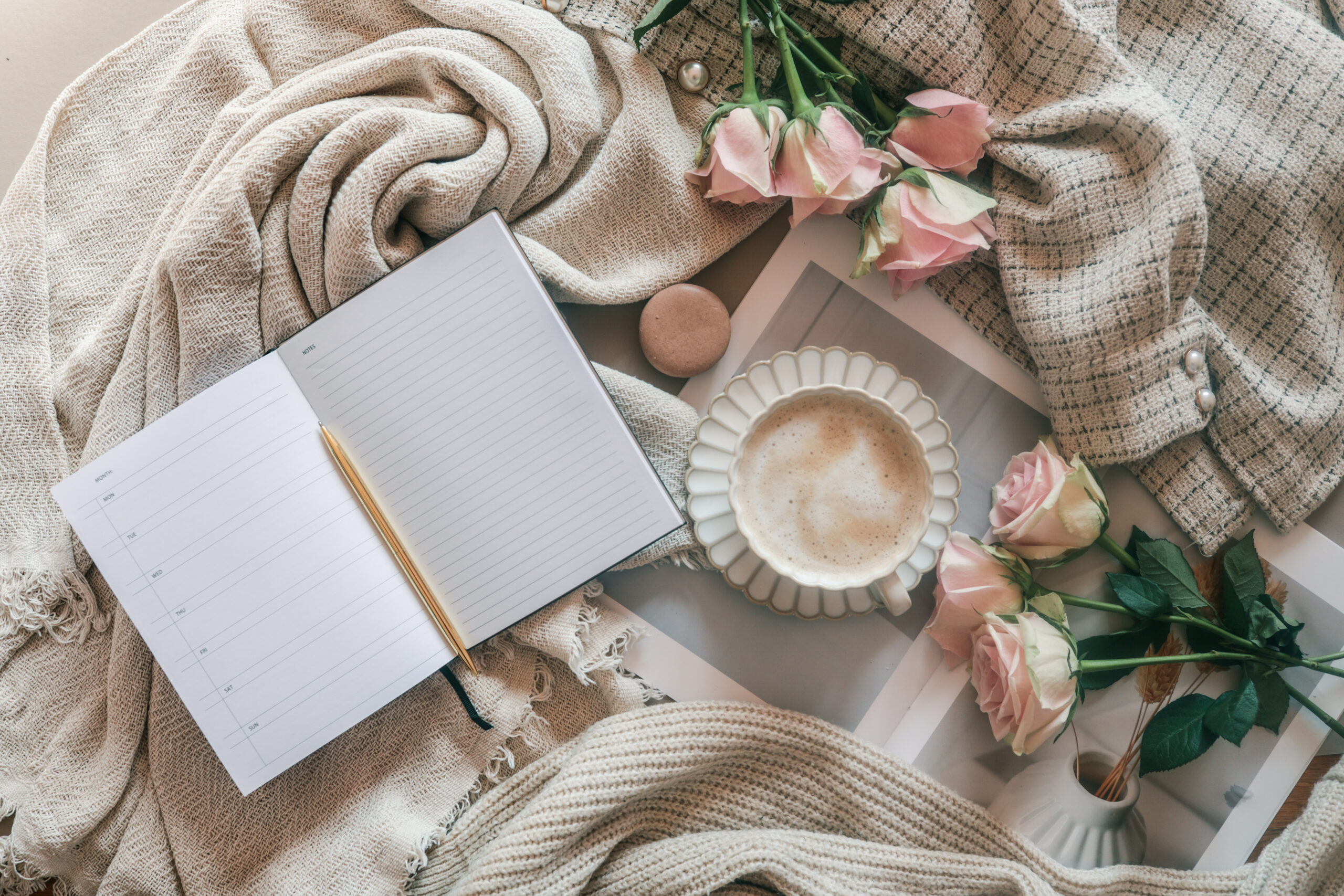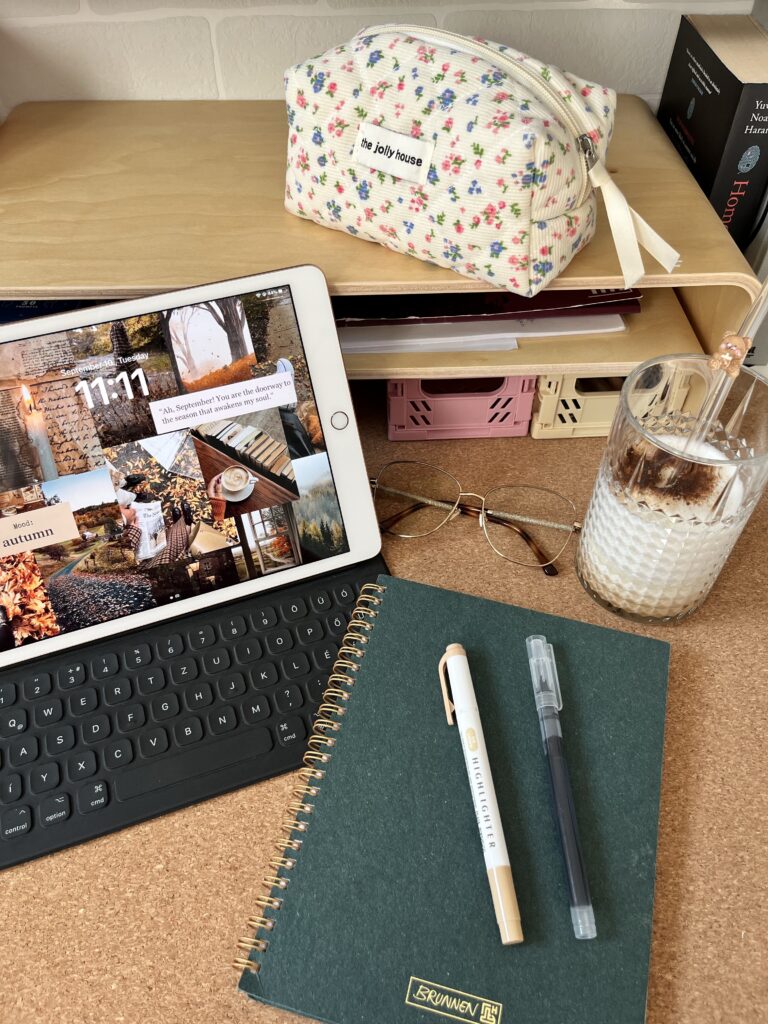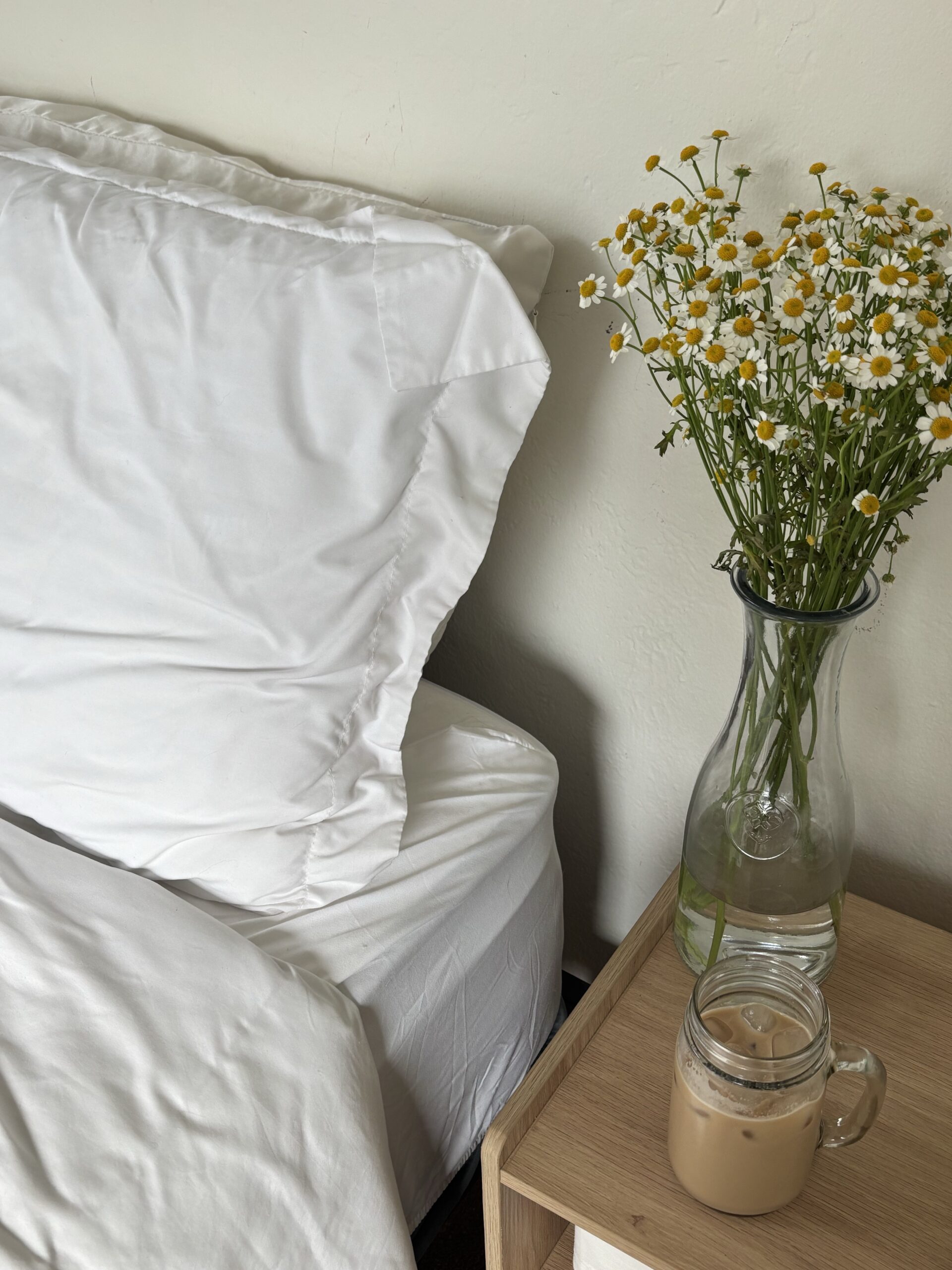ME
NU
Word from Home
I'm Stephanie
You’ve arrived! Welcome to The Everywhere Girl, a slow living blog that helps you cultivate a sense of home in any space or season. I’m Stephanie, resident writer, chronic wanderer, and hospitality enthusiast. I’m so glad you’re part of the community.
My love letter to home. These notes come to you from across the continent, across the globe, and across the hall.
Steeped in faith, literature, and self-discovery, they’re my way of finding home within myself, and with all of you.
How to Start Journaling: Ideas and Prompts for Beginners

Posted In
August 19, 2025
Posted On
Trust me, not having a weekly journaling session is standing between you and better mental health. With so much pressure to post your life story on Instagram these days, you need something that belongs just to you.
Chapters
- The Benefits of Journaling (Why You Should Start)
- How to Start Journaling
- 6 Different Journaling Methods to Consider
- Journal Prompts for Beginners
- The Bottom Line

Putting your feelings down on paper is super therapeutic, but it can be difficult to start the habit. A daily or weekly writing practice may not come to you naturally. People often assume you need a ton of creative talent, willpower, or self-motivation to journal. But this simply isn’t the case. Journaling isn’t a habit you work for; it’s a habit that works for you. So whether you have a pen and paper or an idea and a notes doc, here’s how to start journaling…
The Benefits of Journaling and Why You Should Start
Clarify your thoughts
You can’t always talk or think your way out of your problems. But you can often write your way out of them (at least, according to the lyrics of Hamilton). When you’re writing, you’re forced to prioritize which thoughts are most important to the main story. As you’re doing this, you’ll help your brain sort through the details of challenging situations, and you’ll often find the right solution.
Feel more at peace
I can’t tell you how many times I’ve gone back to my journal and realized, “Wow, I was so worried about that situation, but it worked itself out.” This happened to me last week, and I went back to my journal and had to write, “Well, that’s resolved, sorry for the drama.”
When you write regularly in a journal, you give yourself the space to zoom out and see your life from a wider lens. You’re also able to take action on problems (i.e., write them down) that might otherwise stay in your brain or body. Set it and forget it.
Tell your story
When I worked in the publishing industry, I lost count of how many people wanted to share their memoirs with me. While the memoir genre isn’t hugely profitable or marketable, it’s significant because it’s primarily what people write. All the time, regular, everyday people turn into professional writers because they want to tell their story.
So do your future self a favor and start documenting now. Trust me, recording the small details of your everyday life is invaluable. You can use your journal as a memoir outline (if you decide to write one) or as the completed memoir. Then you can brag to all your memoir-writing friends that yours is already complete.
Watch your goals progress
If you’re always chasing the dopamine high of another life goal, it’s easy to forget about what you’ve already accomplished. By journaling regularly, you track your progress and see how much you’ve accomplished over the years. This helps you make future life goals that are stable and connected to your overall story, rather than a short season of life.
Increase your attention span
Your attention span is going through it. With bite-sized AI Google searches, 20-second Instagram reels, and your job forcing you to multitask, you’re not going to increase your attention span unless you do it intentionally.
A longer attention span is associated with better mental health and cognitive function, and you’re more likely to feel like life moves slowly. Your attention span is easy to reclaim with the right habits, like journaling or reading. You’ll give your brain something to focus on so it can rewire, and you may end up spending less time scrolling social media as an added bonus.
Improve your mental health
Journaling allows you to process emotions and reduce stress in ways that other mental health habits can’t. You’re putting pen to paper and writing your story, which allows you to really see it in a new light. If you’re someone who often overthinks or deals with racing thoughts, the best way to alleviate your mental load is to write it all down and leave it in a notebook.
How to Start Journaling
Get a pretty notebook
Picking out the notebook is half the fun of journaling, and you should find one that really represents your story. Whether it’s a floral design, hardcover, or unlined book for you to fill with Polaroid photos, don’t overthink your choice. Remember, once you finish your first journal, you’ll get the reward of picking out a second one to fill up.
Simplify your journaling routine
It’s easy to get overwhelmed by your journal if you begin with high expectations. Maybe you have a pretty journal that you don’t want to ruin with ink blots, or you’re afraid you won’t be able to communicate what’s really on your heart. All of those are valid concerns. But remember, this new habit is all about supporting you. So start by releasing your expectations and simply put pen to paper. Focus on habit formation (write at the same time weekly), and use the same writing tool every time for simplicity. If you don’t know what to write about, try out a few journal prompts to get started.
Find a sacred space
I’ve struggled to establish a journaling habit for most of my life. Taking inspiration from one of my favorite books, Stepping Heavenward, I would often journal on my birthday and then a few times throughout the year. But recently, I made a habit of visiting the same cafe every Saturday morning with my notebook. It’s a sacred space where I order the same thing and limit distractions. Finding and prioritizing this sacred space has been crucial to sticking with my journaling habit. I genuinely notice when I have to skip a week.
Your sacred space can be a little cafe, a “writing corner” of your apartment, or a comfy space outside in the sunshine. Just reserve that space for journaling and return to it on a regular basis to get your thoughts down on paper.
Commit to yourself
Your new journal routine isn’t a commitment to willpower. It’s a commitment to yourself. This is your mental health habit that’s going to clarify your thoughts and keep you feeling well. Commit to it the same way you would to brushing your teeth or making a nourishing dinner.
Have an outcome in mind
Think about what you want to get from your journal routine. Better mental health, writing time that belongs just to you, or a timeline of your life story? Clarifying these goals helps you know where to begin.
6 Different Journaling Methods to Consider
Bullet journal
This method combines the regular diary format with a to-do list and planner. If you’re “left-brained,” you may enjoy this style better, since you can lean into the analog side. Check things off your list and write a couple of paragraphs about your recent lake trip. There’s no pressure to tell your whole life story with a bullet journal.
Travel journal
If your goal is to simply document more of your life, you might consider bringing a journal when you travel. Commit to writing a few paragraphs each night about your adventures, and see if the habit doesn’t transfer over to your daily life.
Scrapbooking
Yes, scrapbooking absolutely counts as journaling. A picture is worth a thousand words, right? This is a beginner-friendly method, since a few photos can help fill the pages and tell the story. Get a photo printer (I love the Canon Ivy), so you can print out photos and stickers on the go. I often bring my printer with me on trips and print out photos for friends, too.
Morning pages
This method was developed by Julia Cameron in The Artist’s Way. She recommends writing three pages that are just a stream of consciousness. You’re not supposed to overthink or write about anything specific, just pick up a pen and tell what’s on your mind. Julia recommends writing morning pages every day as soon as you wake up, before you touch your phone or look at your to-do list. This method is great for overthinkers, people who want to hone their writing skills, and people who want a habit to replace their morning internet scroll.
Journals with prompts
If you can’t even imagine the idea of writing three pages of content, then a journal with prompts could be helpful. You can buy a journal with built-in prompts, or you can pick some prompts from the internet and start writing. Professional writers often use prompts to get them started, too (there’s no shame — embrace it).
Gratitude journaling
Writing in a gratitude journal is as simple as listing a few bullet points. This is the ultimate mental health habit according to some writers. Commit to writing down five things a day you’re grateful for, and expounding on a few as you feel more comfortable.
Journaling Prompts for Beginners
Staring at a blank page? Use these journal prompts for beginners to get you started.
- Tell a funny story you don’t want to forget about.
- What have you been learning about life lately?
- Write about one thing you’re stressed about.
- Write about three things you’re grateful for.
- Write about the friendships you have and what they mean to you.
- What future goals are you considering and why?
- What are some things you’ve accomplished over the last 6 months?
- What are some things you need to pray about?
- If you had a 5-year plan, what would it look like?
- If you’re not sure what to do about a complicated situation, write a pro/con list.
- Document a few details from your week.
- Recap your recent travels.
- Write a letter to your future self.
- Write something you’d be afraid for people to read.
- What do you not want to forget about this season of life?
- Write out a few affirmations your younger self needed to hear.
- What’s the deeper meaning behind your writer’s block?
The Bottom Line: If Your Journal Is Another Thing Haunting Your To-Do List, You’re Doing It Wrong
To write in a journal is to care for your soul. The world around us is competing for our attention, energy, and even our sleep. It’s easy to get swept away by the noise if we don’t fight back. Journaling is meant to nourish our souls, keeping us grateful for and engaged with life, rather than letting it pass us by.
Want a free journal with prompts?
I made you a free journal with all the prompts from this blog so you can easily sit down and write.
*This article contains affiliate links, so I may receive a commission if you make a purchase. I only partner with brands that I absolutely love and personally use.
Letters to explore
Little comforts for your busy life


